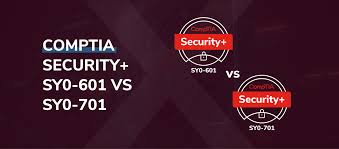The legality of IPTV is a somewhat murky topic for a lot of people. This technology which allows users to watch live broadcasts and video-on-demand services over the internet from anywhere in the world, has gained significant popularity in recent years. The answers to these kinds of questions aren’t always simple. To get the full scoop, let’s unpack what precisely IPTV involves, which aspects have caused confusion, and how to remain on the right side of the law if you use these services.
What is IPTV?
First things first – IPTV stands for Internet Protocol Television. Essentially, it involves delivering TV content to devices over the internet rather than through traditional formats like cable or satellite. Unlike those conventional options, IPTV leverages wider bandwidth to provide video streams and on-demand programming.
Where does the IPTV service legality come in?
At its core, IPTV technology itself is completely lawful. After all, watching videos online is a daily activity for millions. However, issues can arise depending on the specific content and services provided.
Licensed TV providers like cable companies obtain legal permission to distribute channels through regulated means. However, some “underground” IPTV providers use unauthorized streams or pirated content, introducing questions about IPTV service legality. Since these operators don’t hold broadcasting rights, delivering such media infringes on copyrights.
Nonetheless, not all IPTV services break laws. Many legitimate providers like IPTV Access acquire broadcast rights legally to distribute content. Determine if a provider has obtained these licenses to confirm if offerings are above board or not.
How to Stay on the Right Side of IPTV Legality
As we’ve mentioned, copyright infringement poses the primary legal threat to unlicensed IPTV services. While watching streams may not directly place users at risk, profiting from or distributing purloined programming crosses an ethical line that pits piracy against protection.
When exploring IPTV, scrutinize options carefully, as some toe an ethical line. Seek providers transparent about content sources and licensing. Accessing pirated media could bring legal penalties, so vet any unknown operators thoroughly first.
If pricing seems suspiciously cheap compared to major TV services, stay wary.
Enjoy IPTV Legally with Licensed Sources
For peace of mind, stick with reputable IPTV providers securing rights to each channel in their lineup. A subscription through a verified service provider faces no concerns around copyright infringement thanks to their cooperation with licensors.
Compare this pathway to the uncertainty of sketchy, maybe even illegal resellers simply redistributing copyrighted television feeds without authorization.
For legitimate alternatives, explore IPTV Access – a premier provider ensuring access through authorized sources only. Their curated channel selection and high video quality make for a safe and affordable streaming experience.
Final Thoughts
IPTV technology is here to stay and does not inherently break any laws. Technology enabling internet TV continues advancing each year. But while the mechanisms are legal, some content delivery methods might not be bringing about questions of IPTV service legality. As with any streaming option, apply wise judgment when selecting providers. If you feel uncertain about an operator’s legitimacy, avoid the risk by simply choosing one of the many proven legal IPTV platforms like IPTV Access instead.











